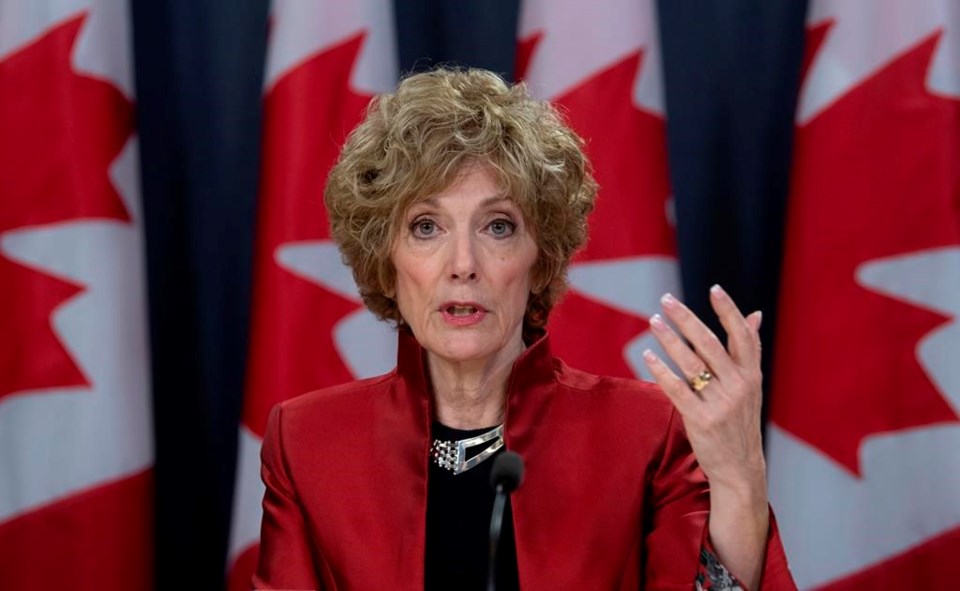
Writers Guild hopes new streaming laws will reverse 'service industry' trend
TORONTO — Amid talks about regulating foreign streaming services in this country, the Writers Guild of Canada is sounding the alarm on what it says is a troubling trend toward a "service industry" and "massive exodus" of talent.
by Canadian PressTORONTO — Amid talks about regulating foreign streaming services in this country, the Writers Guild of Canada is sounding the alarm on what it says is a troubling trend toward a "service industry" and "massive exodus" of talent.
On Wednesday an expert panel analyzing Canada's communications future issued a lengthy report of recommendations, including requiring foreign streaming giants to invest in Canadian programming.
While Netflix and other streamers have filmed numerous projects here, the WGC says many of those series are being written or produced by Americans, not Canadians, and the streaming giant retains much of the copyright.
The WGC says that trend has resulted in a "service industry" in which there's a glut of productions being shot in Canada for foreign companies but with "below-the-line" Canadian crews who don't have ownership over the material.
The WGC defines below-the-line jobs as labour positions, compared to "above-the-line" creative work of a Canadian writer, showrunner, director or producer who could hold copyright and inject a homegrown voice into a production.
"Service production has its place, we understand that, it keeps crews employed, et cetera," WGC executive director Maureen Parker said in a recent phone interview.
"But not at the cost of losing our Canadian voice, and that's exactly what's happening."
Parker said foreign streamers like to shoot here because Canadian crews are adept at creating the esthetic of a North American production, our businesses are interconnected, and "it's just a great deal."
"We are a cheaper location, our dollar is an instant 20-cent saving on the dollar, we give them tax credits from Canadian taxpayers, and often our city councils are building them studios and help funding their infrastructure."
The service industry model has always existed in Canada, with American productions often shooting in major cities including Toronto and Vancouver.
But Parker said it's a particularly tough time for WGC members right now because there's a high volume of content being produced here in the streaming era with little opportunity for Canadian screenwriters or showrunners to be a part of those series from inception.
As Parker explains, the development process for a series typically takes about 18 months, and the writing is often done in Los Angeles prior to the production coming to Canada.
American streamers and studios tend to want their own citizens to write their content, so if they do hire Canadian creatives, it's often a director or actors, Parker said.
This is all happening as Canada's private broadcasters make fewer original programs, Parker added. She cited WGC data showing the total hours of produced scripted programs for the private broadcasters decreased significantly between 2014 and 2019 — falling by 83 per cent at one broadcaster.
Such trends have contributed to "a massive exodus" of WGC membership to L.A. over the past five years, Parker said.
"Writers cannot stay if they cannot pay their mortgage or their rent, and they've had to leave Canada," she said.
"It's not the same as a director or a performer, who will go down to the States for a shoot for a couple of months. Writers have to relocate, because when you're on a show, that's a one- to two-year commitment."
Parker feels the situation is "at a critical stage."
She estimates at least 40 to 50 per cent of their members have gone to L.A. in the past five years. And almost "100 per cent" of new writers immediately leave for L.A. upon graduating, feeling they don't stand a chance if they stay here.
"We're in danger or we have already lost the next generation of storytellers, because there's no reason to stay here," Parker said.
"I have been at this for a very long time and I have never seen it like this. We've gone through rough periods, but this is going to be very difficult to recover from, because we'll never get those members back from L.A."
Like many in the industry, the WGC is calling on the federal government to take urgent action on the recommendations in the new report.
In particular, Parker wants the government to revise the definition of Canadian content, so there is a predominance given to the creators in the digital age.
"Not all of us want to be swamped by American content 24-7. Sometimes you like to see your own city on television and your own stories about your community and the people you know. None of that is reflected in service production," Parker said.
"If we're not controlling the content, then we're not controlling the message."
This report by The Canadian Press was first published Jan. 31, 2020.
Victoria Ahearn, The Canadian Press